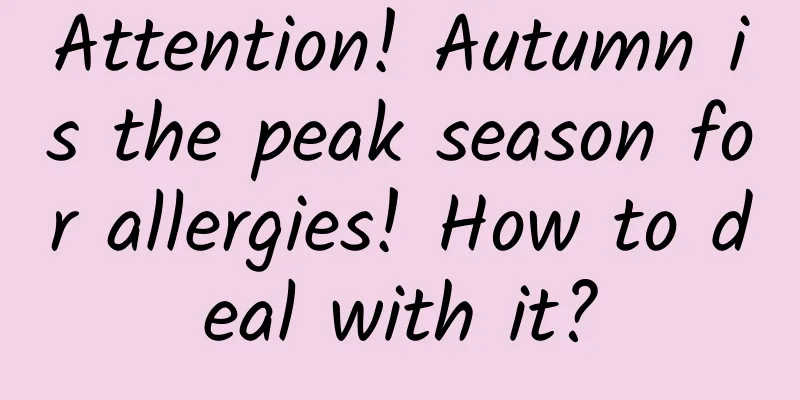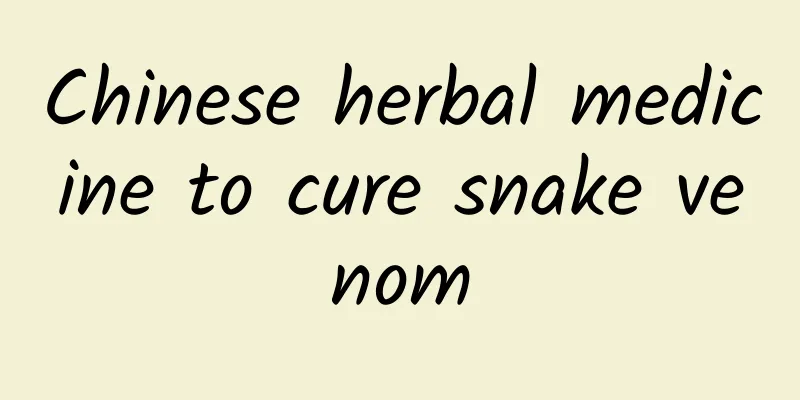Attention! Autumn is the peak season for allergies! How to deal with it?

|
After the fall, some people appeared Itchy eyes and nose Sneezing and tears can't stop flowing Many people thought it was a cold. It's actually the autumn pollen allergy that's causing the problem At present, many places in my country have entered Autumn is the peak season for allergies Why Are Fall Allergies Worse Than Spring? The most common allergens in summer and autumn are pollen, mold, and dust mites. In terms of allergenicity, there are the following differences between autumn and spring allergies: 1. Autumn pollen is more allergenic Most pollen in spring is tree pollen, which has larger particles and often falls to the ground. When blown by the wind, it is inhaled by people and causes allergies. Most autumn pollen comes from weeds, especially Artemisia, Chenopodiaceae/Amaranthaceae, and Humulus. The particles are small and dry, and easily float in the air, making it difficult to guard against. Although the pollen concentration in spring is higher than that in autumn, autumn pollen is more allergenic. Artemisia pollen is one of the important allergens. Some people may have severe allergic reactions after being exposed to only a small amount of Artemisia pollen. 2. Mold grows more in autumn Morning dew or rainfall residue, fallen leaves, and decaying vegetation in autumn can help mold grow. People are also more likely to develop allergies when they come into contact with or inhale mold spores. 3. Autumn is drier than spring The air is dry and the ultraviolet rays are strong in autumn, the skin is prone to lose moisture and its barrier function is weakened, and dry eczema and allergic dermatitis often occur. In addition, autumn is also the peak season for indoor allergies, which is mainly related to the lack of ventilation, resulting in excessive indoor dust mites and dandruff, triggering allergic reactions. If children have allergic symptoms, parents should not take it lightly Not just adults Autumn is also a high incidence period for allergic diseases in children Allergens include pollen, pet dander, fungi, Dust mites, food, medicine, etc. In addition, children with a family history of allergies They are also at high risk of allergies When a child has abdominal pain and diarrhea, after excluding infection, check whether he or she has allergic gastroenteritis; If you have a rash with itching that gets worse after eating certain foods, you should check for allergic dermatitis; If you have symptoms such as nasal itching, nasal congestion, runny nose, sneezing, etc., after excluding infection, you should check whether you have allergic rhinitis; If your eyes are itchy and you also have itchy nose and sneezing, you should check if you have allergic conjunctivitis. If you have cough and wheezing and have ruled out a cold, you should check whether you have variant cough and allergic asthma. Many parents believe Seasonal allergy symptoms occur over a period of time Just bear with it and it will pass In fact, this is a misunderstanding Take common allergic rhinitis as an example It can cause sinusitis, hyposmia, and otitis media Even develop asthma therefore When your child has symptoms Parents must pay close attention to this... How to differentiate between fungal allergies and pollen allergies? Recently, many parts of China have experienced heavy rainfall, high humidity and high temperatures, which provide good conditions for the survival and reproduction of fungi . In this regard, experts remind that allergies are more common in autumn, and the public should be careful about allergic diseases caused by fungi while preventing pollen allergies. Fungal allergy refers to the allergic reaction caused by fungal spores and hyphae entering the body through various pathways. If you suffer from asthma, allergic rhinitis, allergic dermatitis, etc., you are more likely to develop fungal allergy. Fungi like to reproduce in damp environments, especially in poorly ventilated environments such as bathrooms, basements, and warehouses. Summer and autumn are the peak seasons for fungal allergies Especially after rainy days, the air humidity is high Facilitates the proliferation of fungi If you are exposed to it for a long time or frequently In an environment with a lot of fungi May cause fungal allergic diseases Pollen allergy rhinitis Allergic rhinitis caused by fungi Very similar in symptoms Very likely to cause misdiagnosis Therefore, allergen testing is necessary Correct differentiation is the key to effective treatment What to do after an allergy? Once allergic symptoms occur, you need to go to the hospital in time, receive treatment under the guidance of a doctor, and control and intervene in the causes of the allergy. 1. Control and treat environmental allergens Allergen exposure is the initiating factor for allergic diseases. Data from the World Allergy Organization shows that if there are more than 50 dust mites per gram of dust in the environment, it can induce allergies and asthma. If there are more than 100 dust mites per gram of dust in the environment, there is a very high risk of causing acute asthma attacks. Therefore, reducing the concentration of dust mites in the home is an important part of the prevention and treatment of allergic diseases. 2. Desensitization treatment Desensitization therapy is a treatment that gradually increases the dose of harmless external substances from small amounts to allow the body to develop immune tolerance. It is medically called specific immunotherapy and is currently the only method recommended by the World Health Organization for treating the causes of allergies. 3. Symptomatic treatment with drugs The most commonly used are oral antihistamines, which are commonly known as anti-allergic drugs, such as cetirizine, loratadine, mizolastine, ebastine, etc., as well as some topical and local medications, which can effectively relieve discomfort. Medication needs to be taken under the guidance of a doctor. 4. Health management for people with allergies Allergy health management is a management of health awareness, environmental allergens, human physiological and psychological factors, and allergy screening and review for allergic people who are worried about the occurrence of allergic diseases or are in a sub-healthy state throughout their life cycle, such as a state between eczema and allergic rhinitis. |
<<: World Egg Day | Four major problems of eating eggs, one article to help you solve →
>>: Science Illustrations | From the ground to space, why is "Beijing Time" more accurate?
Recommend
How many layers does the sky have?
Please turn your phone over Today’s “journey to h...
This herb is a magical Chinese medicine that many doctors don't know
Impatiens balsamina, also known as henna, is a ve...
Can dandelion treat kidney disease?
Dandelions are very common in daily life. They ca...
The efficacy and function of sea catfish
I believe many people are familiar with the Chine...
The efficacy and function of Scutellaria baicalensis
Scutellaria baicalensis is a very common Chinese ...
The efficacy and function of water shrimp grass
Most people are already familiar with the Chinese...
The efficacy and function of Tripterygium wilfordii
Tripterygium wilfordii is rich in nutritional val...
There are more toxins in moldy fruits than you think! They can cause liver cancer!
Last year, my colleague treated a couple who were...
Can children eat hay flakes?
Licorice tablets are a type of medicine that can ...
Why did dinosaurs get so big? Is there an upper limit?
Editor’s Note: "Why were dinosaurs so big?&q...
The efficacy and function of chicken bone firewood leaves
The development of Western medicine has brought s...
The efficacy and function of sorghum umami
Speaking of sorghum glutinous rice, many people k...
Will eating wolfberry cause children to mature early?
Everyone knows that wolfberry is a food with high...
Attention, tourists! Our next stop is Lung Lobe!
These four tips to increase your lung capacity: I...
What does it feel like to “feel good”?
On July 5, astronaut Wang Yaping wrote an article...









